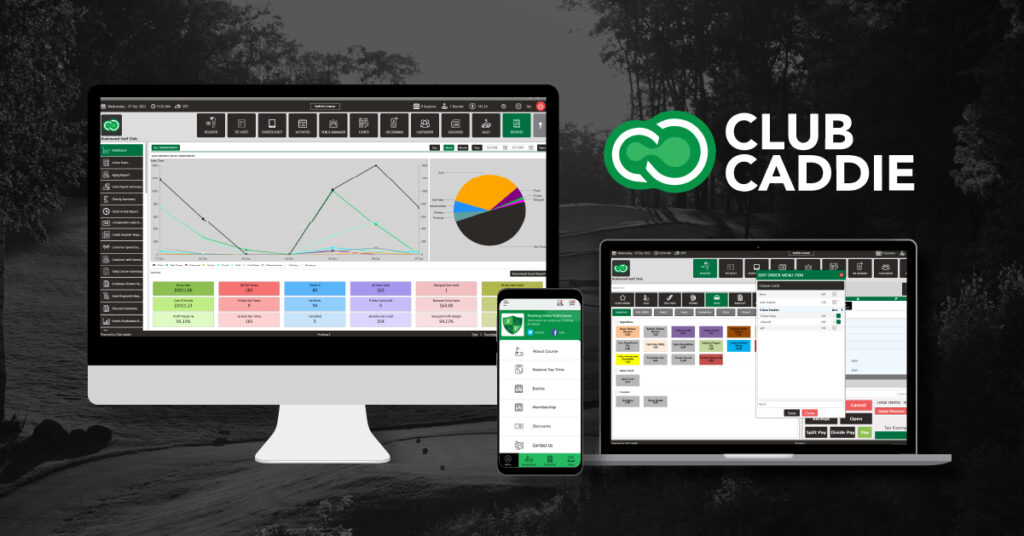Why is adapting to AI crucial for golf course management?
JP: AI is becoming integral to both our personal and professional lives, influencing how we interact as consumers and how businesses operate. For golf courses, AI offers a unique opportunity to enhance revenue generation and streamline operations while simultaneously elevating the customer experience. It allows operators to achieve these goals more efficiently, ensuring that they can focus on delivering the best possible service to their members and guests. Most operators share these objectives.
How is AI currently being used in the daily lives of golfers?
JP: Golfers, like the general public, are engaging with AI more often than they might realize. Whether booking tee times through smart assistants like Alexa or interacting with AI-driven booking engines that suggest personalized add-ons, AI is subtly shaping their experiences. Even something as routine as navigating traffic on the way to the course is often powered by AI. As AI continues to integrate into golf course operations, these interactions will become even more seamless and intuitive, enhancing the overall golfing experience.

In the future, what are some examples of how AI can enhance the customer experience on a golf course?
JP: Looking ahead, AI will play a pivotal role in personalizing the golf experience. By building comprehensive customer profiles from minimal data, AI can anticipate needs and preferences, tailoring recommendations for tee times, special offers, and merchandise. Imagine walking into a golf course where your favorite beverage is ready for you, or being offered a discount on that putter you’ve had your eye on—all because AI recognized your patterns and preferences. This level of personalization not only enhances the customer experience but also strengthens loyalty and retention.
How can AI and automation can help in making targeted marketing decisions for specific customers?
JP: AI and automation are revolutionizing how golf courses approach marketing. For example, AI can automatically segment customers based on behavior, such as new visitors or frequent players, and tailor campaigns accordingly. A first-time visitor might receive a warm follow-up with incentives to return, while a regular player who hasn’t been seen in a while might get a personalized message or a special offer. This kind of targeted marketing, powered by AI, makes every interaction more relevant and engaging, driving customer satisfaction with minimal effort from the operator.
What are the future implications of AI for golf course operators?
JP: While AI is transforming many industries, the essence of golf—hospitality and personal interaction—remains irreplaceable. AI can never substitute the human touch that defines a great golfing experience, but it can certainly enhance it. By automating routine tasks and providing actionable insights, AI frees up operators to focus on what matters most: creating memorable experiences for their customers. As AI continues to evolve, it will enable golf course operators to deliver even better service while optimizing operations and driving profitability.
How does Club Caddie utilize AI in its golf course management system?
JP: At Club Caddie, we see AI as an integral part of the future of golf course management software—so much so that it will become an invisible yet essential aspect of every module. Our AI engine, “Looper,” is designed to serve as a virtual assistant for operators, answering questions and providing data-driven insights on demand. Whether it’s analyzing sales trends or offering guidance on inventory management, Looper empowers operators with the information they need to make informed decisions quickly, all while making the software more intuitive and user-friendly.
What is the overarching goal of integrating AI into golf course management according to the document?
JP: The primary goal of integrating AI into golf course management is to enhance operational efficiency, improve customer satisfaction, and ultimately drive revenue growth. However, it’s crucial to remember that golf is, at its core, a hospitality industry. AI can enhance the service we provide, but it will never replace the human connections that keep golfers coming back. By leveraging AI to streamline operations and personalize experiences, we can ensure that the focus remains on delivering exceptional and efficient customer service, which is the cornerstone of success in this industry.

